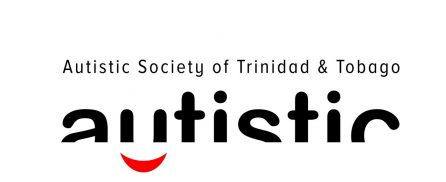Press Release from the Autistic Society of Trinidad & Tobago (est.1990) for 2nd April designated by the UN as World Autism Day
Appeal to help autistic children and their families
The Autistic Society of Trinidad and Tobago (ASTT) joins with other countries around the world to commemorate World Autism Awareness Day (WAAD) on Thursday 02 April 2020. It is a day set aside by the United Nations (UN) to spotlight the hurdles faced by autistic persons, and to encourage autism awareness and acceptance. WAAD was first observed by the UN in 2008. Autism is a global health issue, and it is estimated that 1 in 160 children worldwide are diagnosed with Autism Spectrum Disorder.
There are three levels of diagnosis of Autism Spectrum Disorder ranging from: Level 1 – that requires some support; Level 2 – that requires substantial support and; Level 3 – that requires very substantial support. Children, young people, and adults on the autism spectrum experience challenges with social communication, social interaction, and anxiety, as well as sensory issues. These can contribute to behaviours, which are challenging for them, their families and caregivers. Early diagnosis with early intervention is key to improving a child’s ability to cope.
During this unprecedented time, ASTT wishes to share some some user friendly strategies that are available online to help families. Some key articles include evidence-based strategies, ready-made resources and printable guides compiled by autism experts. The links to these articles can be found on our website (autismtt.org) and Facebook page (Autistic Society of Trinidad and Tobago). However, we also acknowledge that many families do not have internet access, and we invite them to contact us for further information via telephone. Many of our staff have been assisting families in need of individual support, since autism is a very unique culture with specific learning styles and needs. There is no “one size (or strategy) fits all” when it comes to the autistic child or adult.
Articles shared online include:
- “5 Tips for Teaching Flexible Thinking in Unpredictable Times” prepared by Autism Educational Specialist, Kari Dunn Buron who conducted training with ASTT for many years.
- “COVID-19 Toolkit – Supporting Individuals with Autism through Uncertain Times” by Autism Focused Intervention Resources and Modules (AFIRM)
- “Disability considerations during the COVID-19 outbreak” published on the WHO website, March 26 2020.
On a personal note, it has been a great challenge to explain changes to the routine of my adult son, Kester. I think he understands that there is a bad virus (COVID-19), which is getting people sick and that many people are dying all over the world, so we have to take precautions. Our family has been trying to explain and demonstrate visually the many changes, because of restrictions, and we have posted pictures showing the hand washing routine. He has also gotten accustomed to using hand sanitizer.
However, I am aware that many children and adults on the autism spectrum may have difficulty learning the hand washing routine and keeping to the 20 second time- you can sing a rhyme. It is also important for families to be mindful to sanitize all assistive devices that they use. This is indeed a different experience for us all, and I hope that we can cope with the future uncertainty.
On behalf of the Autistic Society of Trinidad and Tobago, I wish to appeal to the authorities, especially Members of Parliament and Councillors, to assist our families who have children and adults with disabilities. There are some who have been contacting ASTT, in need of medical and food supplies.
It is truly frightening to think of what would happen if one of our parents or caregivers contract COVID-19, because we are concerned about who will help our children if we are not there. In another scenario, what procedures will be in place if one of our children or adults has to be quarantined?
It is important to remember at this time, that persons with disabilities have the same rights as the general population to equal access to quality health care close to their communities without discrimination. (Especially note Articles 5, 10, 11 and 25 in the United Nations Convention on the Rights of Persons with Disabilities, UNCRPD)
Although ASTT has cancelled all outreach and fund raising activities during April, we encourage all communities to keep in virtual contact with a family in your neighbourhood and help where necessary. ACCEPT, VALUE and LOVE our children and adults on the autism spectrum.
-Submitted by Teresina Sieunarine, President, on behalf of the Board of ASTT

